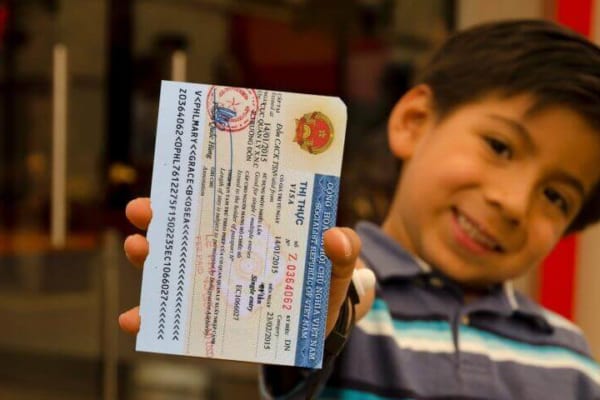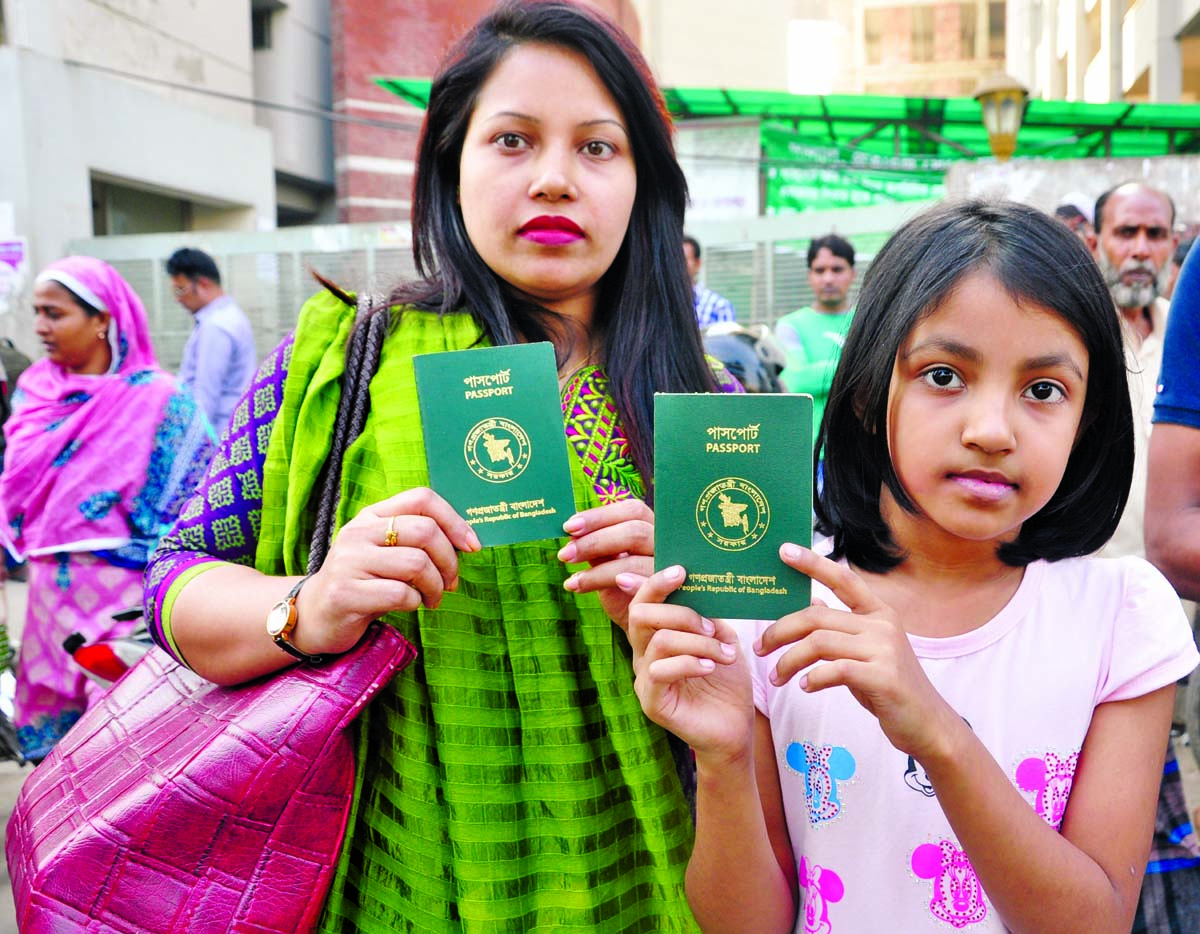When it comes to exploring the picturesque landscapes, vibrant culture, and mouth-watering cuisine of Vietnam, understanding the Vietnam visa from Bangladesh is an essential step for any traveler. Whether you are planning a short vacation, a long-term business trip, or even pursuing education, getting your visa sorted will ensure a seamless journey into this beautiful Southeast Asian nation. This guide aims to provide you with an in-depth look at the Vietnam visa requirements, costs, application processes, and more specifically tailored for Bangladeshi citizens.
Table of Contents
Introduction to Vietnam Visa Requirements

Overview of Vietnamese visa regulations
Understanding the Vietnam visa from Bangladesh regulations is crucial before embarking on your journey. As a Bangladeshi citizen, you are required to obtain a visa before entering Vietnam. The country operates a visa pre-approval system that allows travelers to apply through the Vietnamese Embassy or Consulate or by using an online visa service.
Vietnam offers various types of visas including tourist, business, student, and work visas. Each type serves a different purpose and has distinct application requirements. The visa duration also varies, with options typically ranging from one month to several months, depending on the specific needs of the traveler.
Visa regulations can sometimes change, so it’s advisable to check for the latest updates on the official website of the Vietnamese Embassy in Dhaka before applying. Being informed not only streamlines the process but also saves you from potential legal troubles during your stay in Vietnam.
Importance of understanding visa fees
Knowing the Vietnam visa cost for Bangladeshi citizens is a key component of effective travel planning. Understanding these fees helps you budget for your trip more accurately, taking into account not just the visa itself, but also any additional charges that may arise during the application process. This foresight prevents any financial surprises that could disrupt your travel plans.
Moreover, being aware of the associated costs fosters transparency in the application process. You will know precisely what you’re paying for without fear of hidden fees or scams that are often prevalent in the travel industry. Ultimately, having a clear grasp of visa fees enables you to make informed choices regarding which visa type and processing speed best suit your needs and financial capacity.
Different Types of Vietnam Visas

Tourist Visa options
The most commonly sought visa for Bangladeshi travelers is the tourist visa. Generally, there are two types of tourist visas available: single-entry and multiple-entry.
A single-entry tourist visa allows you to enter Vietnam once and stay for a duration usually ranging from 30 days. This type is ideal for those who plan a short visit, perhaps for tourism or visiting friends or family. On the other hand, the multiple-entry visa permits several entries over a period of time, making it suitable for frequent travelers or those who have plans to explore neighboring countries during their stay.
Travelers must be careful when choosing between these options, as overstaying a visa can affect future travel plans or lead to fines. In addition, it’s important to note that tourist visas cannot be converted to other visa types while in Vietnam.
Business Visa categories
For those traveling for professional reasons, a business visa is required. This visa allows the holder to conduct various business-related activities such as attending meetings, conferences, or signing contracts.
Business visas can come in both single-entry and multiple-entry formats, allowing flexibility based on your travel itinerary. They also typically require more documentation than tourist visas. Generally, an invitation letter from a Vietnamese organization or company is needed, along with proof of financial capability to support your stay.
Applying for a business visa might seem daunting due to the added paperwork, but it’s essential for ensuring that your professional engagements in Vietnam are legally recognized.
Work Visa details
If employment is your primary reason for visiting Vietnam, then you’ll need a work visa. This is a more complex visa type, requiring sponsorship from a Vietnamese employer who must assist you with the necessary documentation.
Obtaining a work visa requires you to meet specific criteria set forth by the Vietnamese labor laws, including holding a valid labor permit. It’s vital for applicants to understand that working in Vietnam without the appropriate visa can lead to serious legal issues, including deportation and bans on future entry.
The processing time for a work visa may also take longer than other visa types due to the extensive verification process, reinforcing the importance of starting your application well in advance of your intended travel dates.
Student Visa information
If you’re considering furthering your education in Vietnam, you’ll need a student visa, which is issued for the duration of your studies. This type of visa is generally processed through the educational institution you intend to attend, which provides guidance and necessary documentation for your application.
To qualify for a student visa, you usually need to show proof of admission to a recognized Vietnamese institution, along with evidence of financial means to sustain yourself during your stay.
Given the increasing popularity of Vietnam as an educational destination, students from Bangladesh should act quickly and prepare all necessary documents to facilitate a smooth application process.
Visa Application Process for Bangladesh Citizens

Step-by-step application guide
The overall process for Bangladeshi citizens seeking a Vietnamese visa is relatively straightforward, albeit requiring meticulous attention to detail. Here’s a step-by-step guide:
Firstly, gather all required documents before proceeding with the application. Essential documents typically include your passport (which must have at least six months validity), a completed visa application form, recent passport-sized photographs, proof of accommodation in Vietnam, and financial statements.
Next, complete the visa application form accurately, ensuring all personal details, travel plans, and purposes of your visit are correctly filled out. Any inaccuracies can lead to delays, or worse, rejection of your application.
After filling the application form, submit it along with the required documents to either the Vietnamese Embassy or Consulate in Dhaka. Alternatively, you may opt to utilize a visa agent for assistance, which can simplify the process significantly.
Once submitted, pay the visa fees through accepted methods, which will be discussed later. After payment, you will need to wait for the processing time, which typically ranges from 3 to 15 working days based on the visa type and application option selected.
Finally, once notified that your visa has been approved, collect your passport from the embassy or consulate. If you used a visa agent, they would typically handle the delivery of your passport back to you.
Required documents for application
To successfully apply for a Vietnam visa, Bangladeshi citizens must prepare the following documents:
- A valid passport with a minimum of six months remaining validity.
- A completed visa application form, which can be obtained from the embassy’s official website or directly from the consulate.
- Two recent passport-sized photographs taken against a white background.
- Proof of accommodation in Vietnam, such as a hotel reservation or invitation from a host.
- Evidence of financial capability to support your stay, typically in the form of bank statements.
- Any additional documents, such as an invitation letter if applicable, particularly for business visas.
It’s advisable to verify the specific document requirements based on your visa type as they may differ slightly. Always refer to the Vietnamese Embassy or Consulate’s official website for the most accurate and updated information.
Common mistakes to avoid during application
To enhance your chances of a smooth visa application process, here are some common mistakes to steer clear of:
One prevalent mistake is submitting an incomplete or inaccurate application form. Double-check all details for errors, as discrepancies can delay your application or result in outright rejection.
Another frequent oversight is failing to provide all necessary supporting documents. Ensure that you check off each required item from the list before submission, as missing documents can lead to complications.
It’s also crucial to be mindful of your passport’s validity. Many embassies require that your passport remains valid for at least six months beyond your expected departure date from Vietnam. Failing to meet this requirement can render your application invalid.
Paying the correct visa fees is another essential detail not to overlook. Verify the exact fee based on the type of visa you’re applying for and ensure timely payment. Lastly, keep track of application deadlines to avoid late submissions.
Understanding Vietnam Visa Fees

Breakdown of visa costs
When considering a trip to Vietnam, it’s essential to understand the Vietnam visa fee for Bangladeshi citizens. The visa fees vary based on factors like the type of visa, duration of stay, and whether you’re applying through an embassy or a visa agent.
For instance, a single-entry tourist visa for one month might cost around USD 25-35, while a multiple-entry tourist visa valid for three months could range from USD 50-60. Conversely, business visas generally start at about USD 50-70, whereas work visas tend to be the most expensive, often falling between USD 100-150 or higher.
Understanding these costs upfront prepares you financially and enables you to choose the most economical option for your travel plans. Additionally, being informed about possible fluctuations in fees helps to mitigate unexpected expenses.
Additional fees and charges
In addition to standard visa fees, there are often additional charges that travelers should consider. For instance, if you decide to use a visa agent, they typically charge a separate service fee on top of the regular visa fees. This fee can vary widely based on the services provided, so it’s wise to inquire beforehand.
Furthermore, if you opt to receive your passport via courier, you may incur extra courier charges. It’s also worth noting that if you choose to pay your visa fees through bank transfer, your bank may levy transfer fees, which can add to your overall costs.
Being aware of these potential extra expenses will help you budget more effectively and avoid any unpleasant surprises.
Payment methods accepted
Payment for visa fees can be made via various methods, depending on the Vietnamese Embassy or Consulate’s policies. Common options include:
- Cash Payments: Most embassies accept cash payments in Bangladeshi Taka (BDT) at the time of application submission.
- Bank Transfers: Visa fees can also be paid through bank transfers, but ensure that you follow the embassy’s guidelines for this method.
- Online Payment Options: Some visa agents provide online payment facilities, allowing you to pay for visa fees via credit or debit card. This method is convenient and can expedite your application process.
Make sure to keep receipts or confirmation emails of your payment as proof, which might be useful for future reference.
Vietnam Visa Fee Comparison

Tourist vs. Business visa fees
When comparing the Vietnam tourist visa fee for Bangladeshi citizens to business visa fees, it’s evident that business visas are generally more expensive. This difference stems from the increased administrative scrutiny involved in processing business applications which typically require extensive documentation and verification.
Since business visas also permit a wider range of activities and potentially longer durations, their fees reflect this added complexity. As a traveler, it’s essential to weigh your reasons for visiting Vietnam against the associated visa costs to determine which option best aligns with your travel goals.
Short-term vs. long-term visa costs
Short-term visa applications are often less expensive compared to long-term ones. For example, a single-entry tourist visa for one month will generally incur lower fees than a three-month or longer multiple-entry visa.
Choosing a short-term visa for a brief visit is a practical way to save on visa costs. However, if you plan multiple trips to Vietnam within a short timeframe, investing in a long-term visa might prove economical in the long run, as it eliminates the hassle of reapplying.
Differences in fees based on processing time
Some embassies offer expedited processing options for an additional fee. This can be beneficial if you find yourself in a time crunch and need your visa sooner than the standard processing times allow.
The expedited processing fees can vary significantly based on how urgently you need your visa, so it’s advisable to discuss this option when submitting your application. While it may add to your overall costs, the peace of mind that comes with quick approval can be worth the extra expense.
Factors Influencing Visa Fees
Duration of stay
The intended duration of your stay in Vietnam is a primary factor influencing visa fees. Longer stays generally require more comprehensive processing, which naturally leads to higher costs. For example, a visa valid for one month will typically be cheaper than one valid for three months.
If you anticipate needing an extended stay, familiarizing yourself with the associated costs can help you in budgeting appropriately and ensuring you select the right visa type that aligns with your travel plans.
Seasonality and peak travel times
While visa fees themselves may not fluctuate dramatically based on seasonality, demand for visa services can surge during peak travel seasons. Increased demand can lead to longer processing times, which may indirectly influence your decision-making regarding visa application timelines.
It’s wise to plan ahead and submit your application well in advance of peak travel times to avoid rushed decisions or increased costs.
Processing speed options
As previously mentioned, many embassies offer expedited processing for an additional fee. This option is advantageous for travelers who may need to leave on short notice. However, it’s essential to weigh the urgency of your travel plans against the additional costs entailed.
Always assess whether the added expense for expedited processing aligns with your current circumstances, or if waiting for standard processing would suffice.
How to Pay Vietnam Visa Fees from Bangladesh
Online payment methods
Many visa agents provide convenient online payment methods for visa fees, allowing applicants to pay securely via credit or debit cards. This method not only simplifies the payment process but also ensures swift application handling.
Be cautious to only use reputable websites and agents for online payments to protect your financial information. Always retain payment receipts for your records, as they serve as proof of transaction in case of discrepancies.
Bank transfer options
If you prefer the traditional banking route, paying via bank transfer is often an option. When choosing this method, ensure that you carefully follow the instructions provided by the Vietnamese Embassy or Consulate to avoid errors that could delay your application.
Keep in mind that banks may impose transfer fees, which could add to your total visa costs. It’s prudent to consult with your bank beforehand to understand any applicable fees.
Cash payment procedures
Cash payments at the embassy or consulate remain a popular option. When opting for this method, ensure that you carry the exact amount required in Bangladeshi Taka since change might not always be available.
Additionally, remember to ask for a receipt upon payment, as this serves as your record of payment and can be vital for tracking down any issues with your application.
Special Discounts and Offers
Promotions for first-time applicants
Occasionally, some visa agents may offer promotions or discounts for first-time applicants. These offers can significantly reduce the cost of obtaining a Vietnam visa for Bangladeshi citizens.
Do thorough research before applying and keep an eye out for any special offers that may be applicable to your situation. Utilizing such promotions can help alleviate costs, especially if you are planning multiple trips to Vietnam.
Conclusion
Navigating the complexities of Vietnam visa from Bangladesh is a crucial part of planning your trip to this stunningly diverse country. Understanding the various types of visas available, the costs associated with each, and the application process can significantly ease your travel experience.
From tourist visas to work permits, each category has its own unique requirements and fee structures that cater to different purposes of travel. Being well-informed about these elements allows you to budget more accurately, apply more efficiently, and ultimately enjoy a smooth journey into Vietnam.
Whether you’re drawn to Vietnam’s breathtaking natural beauty, rich history, or delectable food, having your visa sorted is the first step toward uncovering the wonders that await you. So take that leap, make the necessary preparations, and get ready for an unforgettable adventure in Vietnam!

